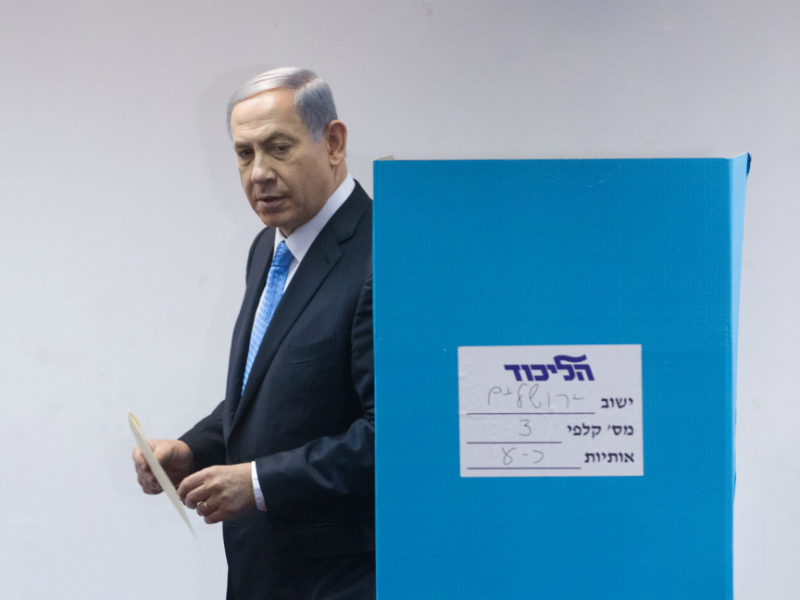If the lead up to Israel’s Sept. 17 election has appeared uninspired compared to previous campaigns, there’s good reason for that. The battle lines drawn in the aftermath of April’s election – Benjamin Netanyahu’s Likud victorious over Blue and White, but stymied by Avigdor Liberman – haven’t changed. The biggest revelation of this campaign might well be Amir Peretz’s upper lip – exposed to the world by the famously mustachioed Labor leader.
Polls suggest the Israeli electorate will vote similarly to the April election. If that turns out to be the case, Israel could be headed to another coalition muddle.
Barring any last-minute surprises, the two most likely post-election scenarios are:
- Netanyahu cobbles together a right-wing coalition, including Liberman’s Yisrael Beiteinu. Liberman has said he will not join a Netanyahu-led government, but perhaps he can be convinced with the right package of policies and postings.
- Lieberman sticks to his guns, forcing his stated preferred outcome: a Likud-Blue and White coalition.
Here’s where things could get tricky. The leaders of Blue and White have stated their opposition to forming a government with Likud so long as Netanyahu heads the party. Is there enough appetite among the Likud rank and file to ditch Netanyahu? Or failing that, can Blue and White find a way to sit in government with Bibi and still save face?
If Netanyahu’s political future seems in doubt once again – and that’s without even considering the potential fallout from looming criminal indictments – there are some things we can say with certainty about the ongoing legacy of Israel’s longest serving prime minister. They are perhaps best illustrated by two galvanizing moments:
- Seventeen years ago this week, Netanyahu, during one of the infrequent times this century when he was not Israel’s prime minister, was set to give a talk at Concordia University in Montreal. Instead, Sept. 9, 2002, infamously saw rioters wreak havoc at the university, leading to multiple arrests and the cancellation of Netanyahu’s appearance. “They’re supporting Saddam Hussein,” Netanyahu said of the protesters from his Montreal hotel room, “they’re supporting Arafat, they’re supporting Bin Laden.” “In Israel,” he added, “we enable free debate and free discussion in conditions of much greater duress.”
- Seven years later – a decade ago this month – Prime Minister Netanyahu stood before the United Nations General Assembly in New York and called on the world to unite against Iran. “The most urgent challenge facing this body today is to prevent the tyrant of Tehran from acquiring nuclear weapons,” he said, referring to the Holocaust-denying then-Iranian president Mahmoud Ahmadinejad. “Perhaps some of you think that this man and his odious regime, perhaps they threaten only the Jews. Well, if you think that, you’re wrong. You’re dead wrong.”
These two events demonstrate one of Netanyahu’s gifts: his uncanny ability to promote Israel’s unique sensibilities and to tie the Jewish state to the battle for democracy and justice around the world – and to do so simultaneously. For all of the valid criticisms of Netanyahu, and regardless of what happens after Sept. 17, no one can ever take that away from him. It is truly a rare skill, and whoever eventually succeeds Netanyahu would do well to learn from it.
